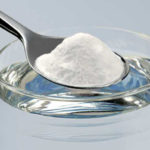Pomegranates contain vitamin C and vitamin B, organic acids, sugar, protein, lipids, calcium, phosphorus, potassium, and other minerals. Among them, pomegranates have 1-2 times higher vitamin C content than apples. Every component of pomegranates provides various nutrients.
Pomegranate juice contains numerous amino acids and trace elements, which help enhance digestion, prevent ulcers, soften blood vessels, stabilize blood pressure and sugar levels, reduce cholesterol, and offer various other benefits. However, some people are not suitable for consuming pomegranate, including:

Flu patients
Children should also limit their intake of pomegranate as excessive consumption can cause heatiness in the body. Also, individuals with diabetes should avoid it.
Patients with diabetes: Although pomegranates can help monitor blood sugar levels, they are not an ideal fruit for regular consumption.
It is best to remove the seeds when consuming pomegranates
Ripe pomegranate seeds are highly nutritious and have antibacterial, antioxidant, and effective deworming properties. However, there have been cases of severe intestinal obstruction in children caused by consuming excessive pomegranate seeds.
Therefore, when eating pomegranates, it is advisable not to swallow the seeds. Adults should chew them thoroughly before swallowing.
To fully benefit from the nutrients in pomegranates, you can extract the juice or combine them with other fruits such as pear, cherry, mango, or orange to create a delicious and fragrant juice as desired.
People with constipation
Individuals with constipation should avoid eating pomegranates as the alkaloid and tannin content in pomegranates have astringent and anti-inflammatory effects. Consuming excessive amounts of pomegranates can worsen the condition.
Individuals with gastric problems
Pomegranates contain high levels of acid, so individuals with gastric pain should avoid consuming excessive amounts of pomegranates and refrain from eating them on an empty stomach.

Some benefits of pomegranates:
Prevent heart disease
Pomegranate juice is rich in ellagic acid, tannins, and anthocyanins, which are antioxidants that help maintain a healthy body and prevent cardiovascular diseases. Pomegranates contain a large amount of polyphenols that can reduce arterial wall thickness, plaque formation, and oxidative damage caused by bad cholesterol, which is a major risk factor for heart disease.
Prevent cancer risks
Thanks to their high content of polyphenols and antioxidants, pomegranates effectively inhibit the growth of cancer cells. They are particularly useful in preventing prostate cancer and inhibiting aromatase enzymes, which are the main cause of breast cancer. Moreover, pomegranates contain a high amount of vitamin C, which can boost the immune system and help the body fight against carcinogens.
Skincare
Pomegranates are rich in vitamin E, a relatively rare compound in fresh fruits. Vitamin E plays an important role in antioxidant functions in the human body, eliminating free radicals that are toxic to cells and tissues. This helps slow down the aging process and supports cell and tissue repair.
Prevent anemia
Pomegranates are rich in iron, which helps the body produce red blood cells, making them beneficial in preventing anemia. Pomegranates are also excellent for treating red eyes. By squeezing a few drops of pomegranate juice and applying it to sore eyes, the condition can significantly improve.
Mood enhancement and sleep improvement
Consuming pomegranates can provide the body with essential B vitamins, reducing fatigue and regulating sleep patterns. Additionally, pomegranates are rich in magnesium, a natural “sedative” that can help alleviate depression and anxiety.
How to Effectively Treat Fishbone Issues at Home
Everyone loves feasting on the deliciousness of fish during the holidays. But, unfortunately, choking on fish bones is an unavoidable issue that may lead to devastating consequences if left unattended for a prolonged period. Let’s see how Dien May Xanh can help us out when fish bones get stuck in our throat.
Unlock 8 Benefits with a Daily 5-Minute Jog
Living a hectic lifestyle can make fitting in time to exercise difficult. However, studies have revealed that even just 5 minutes of jogging a day can lead to positive outcomes for your health, including a decrease in the risk of developing cardiovascular disease, extending your life span by up to 3 years, or even reducing the susceptibility to heart disease.





































